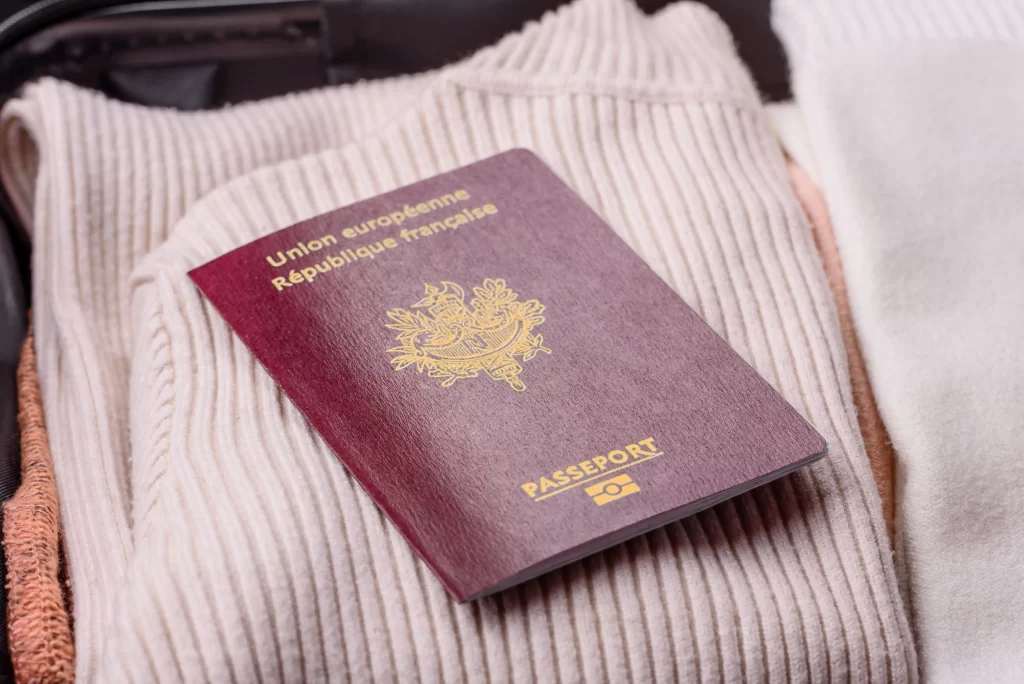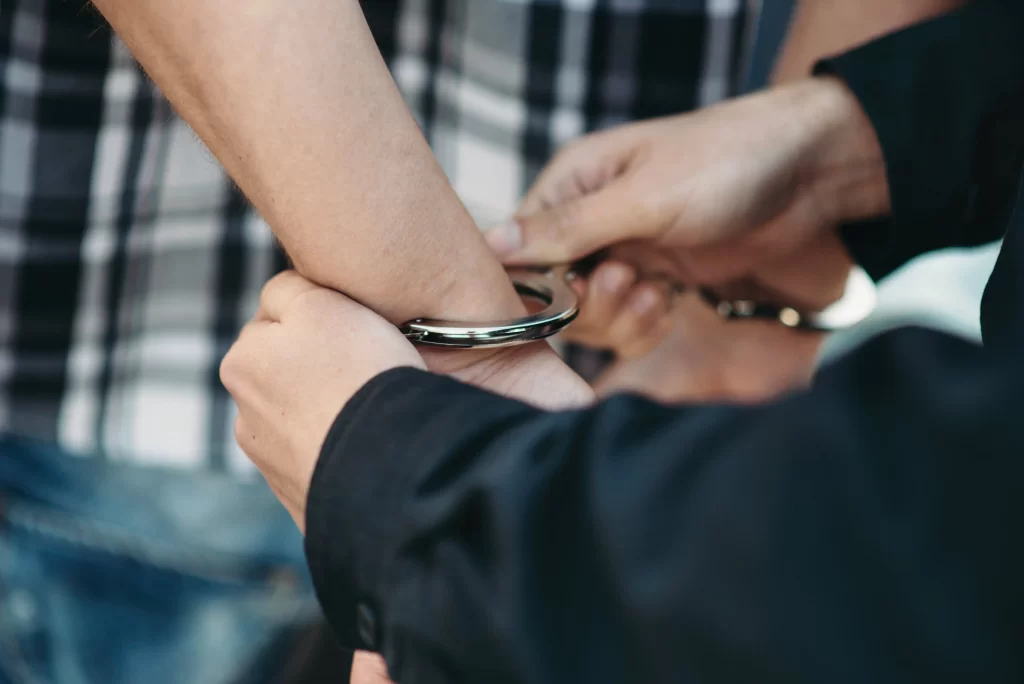Criminal Litigation
Criminal Litigation
Facing criminal charges in Malaysia can be daunting. Our criminal litigation team offers robust defense strategies, ensuring your rights are protected throughout the legal process. We handle various criminal cases, including theft, assault, and more, providing you with experienced and supportive legal representation.
How Can We Help You?
We are proud to offer legal services for commercial crime, drug offenses, and corruption cases. With our experience and knowledge in these areas, we provide dedicated support tailored to your situation, making sure you have a strong advocate by your side.
We have experienced in dealing with criminal law which includes the following:

01.
Corruption Offenses

02.
White Collar Crime

03.
Anti Money Laundering

04.
Drug Offenses

05.
Immigration Offenses

06.
General Crime
FAQs
1. What statute governs drug offences?
The Dangerous Drugs Act 1952 (DDA) is the primary legislation.
2. What quantities trigger the presumption of trafficking?
For example, ≥15 g heroin or morphine, ≥40 g cocaine, ≥200 g cannabis (s 37 DDA).
3. What must the prosecution prove to establish “possession”?
Custody, control and knowledge—knowledge is often inferred from the facts.
4. Can a person possess drugs that are not physically on them?
Yes; constructive possession exists where the accused controls the premises containing the drugs.
5. Does Malaysia still impose mandatory death for trafficking?
No. The Abolition of Mandatory Death Penalty Act 2023 removed the compulsory sentence and restored judicial discretion.
6. What alternative sentences are now available under s 39B?
Judges may impose life imprisonment (30–40 years) plus 12-30 strokes of the cane where mitigating factors exist.
7. How can existing death-row inmates seek a lighter sentence?
Act 847 created a 90-day window for a Federal Court re-sentencing application.
8. What factors guide judges when choosing between life and death?
A 2024 sentencing practice direction lists quantity, role in syndicate, presence of weapons and cooperation with authorities.
9. How can an accused rebut the trafficking presumption?
By proving on the balance of probabilities that the drugs were not for trafficking—showing personal use or lack of knowledge, for instance.
10. Is “I didn’t know the bag contained drugs” a defence?
Yes, but the accused must show more than mere denial; evidence of lack of wilful blindness is required.
11. Can an “innocent carrier” defence succeed?
Possibly, if the accused can show they were duped and took reasonable steps to verify the contents.
12. What safeguards apply to caution statements?
Statements must be voluntary and recorded under CPC ss 112-113; oppression or inducement will render them inadmissible.
13. Why is chain of custody so important?
Breaks in the chain can create doubt whether the exhibits analysed are the ones seized, leading to acquittal.
14. May the defence insist the chemist attend court?
Yes—filing a s 399 CPC notice compels the analyst to appear for cross-examination.
15. What is the normal appeal route?
High Court decisions go to the Court of Appeal as of right; a further Federal Court appeal requires leave on a point of law.
16. Are small-quantity offences bailable?
Possession under s 12(3) (e.g., <5 g heroin) is bailable at the court’s discretion.
17. Is there a rehabilitation option for addicts?
Yes. The Drug Dependants (Treatment & Rehabilitation) Act 1983 can divert an addict to a Cure-and-Care centre instead of prison.
18. Does duress operate as a defence?
Yes—if the accused acted under an immediate threat of death or serious harm and had no safe avenue of escape.
19. How big a sentence discount follows an early guilty plea?
Courts frequently apply up to a one-third reduction on a timely plea.
20. Can possession of tiny amounts lead only to a fine?
Yes—s 12(3) allows a fine of up to RM 100 000 (or imprisonment up to five years) for small-quantity possession.
21. Will cooperation with police help at sentencing?
Yes. Providing useful information is an accepted mitigating factor under the 2024 sentencing guidelines.
22. Can the defence request re-analysis of the drug sample?
Yes, and a variance of more than 2 % from the prosecution’s weight may raise reasonable doubt.
23. Will illegally obtained evidence be excluded?
The court may exclude it where admission would compromise trial fairness.
24. Who is most affected by mandatory death abolition?
Amnesty’s July 2024 review notes over 350 prisoners—including many foreign women—have petitions pending.
25. Are drug traffickers’ assets subject to forfeiture?
Yes. The Anti-Money Laundering, Anti-Terrorism Financing & Proceeds of Unlawful Activities Act 2001 applies.
26. Do minors face capital punishment?
No. A child under 18 is instead detained at the pleasure of the Yang di-Pertuan Agong under the Child Act 2001.
27. When is a life-sentence prisoner eligible for parole?
After serving 30 years, subject to good behaviour and absence of drug infractions in prison.
28. Is ketum treated like cannabis?
Trafficking in ≥1 kg of ketum leaves engages the s 37 presumption under a 2017 regulation.
29. How does Malaysia cooperate internationally?
Mutual Assistance in Criminal Matters Act 2002 allows Malaysia to share evidence and extradite for drug offences.
30. Is there pressure to abolish the death penalty entirely?
UNODC and Amnesty continue urging total abolition, citing Malaysia’s October 2024 commutation decision as a positive precedent.
FAQs for Criminal Procedure (Malaysia)
1. Which statute governs criminal procedure?
The Criminal Procedure Code (CPC, Act 593), last substantively amended in the 2024 Amendment (No. 2) Act.
2. What headline change did the 2024 amendments make?
They expanded the First Schedule to incorporate new Penal Code ss 507B-507F dealing with bullying and on-line harassment.
3. Can suspects for those harassment offences be arrested without a warrant?
Yes. The updated First Schedule lists them as arrestable offences.
4. Is the offence in s 507D(2) bailable?
No. Where harassment leads to a suicide attempt, the new s 507D(2) is expressly non-bailable.
5. What new disclosure duty does s 51BB impose?
Within 30 days of the first court mention, the prosecution must serve all digital forensic reports and any body-camera footage.
6. How have victim-impact statements changed?
A brand-new s 426C empowers judges to receive written victim-impact statements and to explain publicly why compensation is granted or refused.
7. How is electronic evidence authenticated now?
Sections 90A-90B Evidence Act allow computer records to be proved by certificate, and the CPC now expressly recognises hash-value certification.
8. What are the statutory remand limits?
For ordinary offences police may seek up to 14 days; security offences under SOSMA allow up to 28 days.
9. When does a suspect get the right to counsel?
Article 5(3) Federal Constitution and s 28A CPC require that access to a lawyer be provided “within a reasonable time.”
10. Has Malaysia formalised plea bargaining?
Yes. The 2023 Practice Direction on Plea Bargaining lets the judge indicate a likely sentence if the accused pleads early.
11. What is the new fast-track criminal appeal?
The Courts of Judicature (Amendment) Act 2023 gives parties six weeks (not eight) to file the record of appeal and allows pure points of law to reach the Court of Appeal within 60 days.
12. How do e-Notes-of-Evidence work?
Since 2024 every Sessions-Court trial is recorded in real time; certified transcripts reach counsel within 48 hours, greatly expediting appeals.
13. Can witnesses testify by video link?
Yes. Section 272B CPC (inserted 2022) permits live-link testimony, widely used in child-sexual-offence trials.
14. Do investigators now get easier access to bank records?
Yes. New ss 116C-116D (in force Jan 2025) allow ex-parte orders compelling banks to disclose customer data.
15. Is police body-camera video now admissible?
The same amending Act treats certified camera footage as documentary evidence once the relevant certificate is filed.
16. How does restorative justice work for juveniles?
Practice Direction 2/2024 encourages family-group conferences and diversion schemes before the charge is finalised.
17. How are vulnerable witnesses protected?
Witness Protection Act 2009 and 2023 Rules allow anonymity and screen devices in trafficking or organised-crime trials.
18. Can an accused charged with drug trafficking ever get bail?
Trafficking under DDA s 39B remains non-bailable; however, possession of less than 40 g of cannabis can be bailable in a magistrate’s discretion.
19. What safeguards exist against double jeopardy?
Article 7(2) Federal Constitution bars a second trial after acquittal; only the Court of Appeal may set aside an acquittal.
20. Can an acquitted accused recover costs?
Yes—s 426 CPC lets a judge order the prosecution to pay costs, though the power is sparingly exercised.
21. Are interlocutory rulings on evidence appealable?
Yes. The Court of Appeal can review evidential rulings under s 50 Courts of Judicature Act.
22. Must police now wear body-cams?
Yes. The Court of Appeal can review evidential rulings under s 50 Courts of Judicature Act.
23. What happened to committal proceedings for capital cases?
Section 177 CPC was repealed; murder and similar charges now go straight to the High Court on registration.
24. How does the 2023-25 resentencing review work?
25. Can a magistrate issue a warrant for cloud-stored data?
Yes—the 2024 amendments to s 116B expressly cover data stored “in any electronic system, whether in or outside Malaysia.”
26. What are electronic-monitoring orders?
Criminal Procedure (Electronic Monitoring) Rules 2023 let courts impose ankle tags on bail or release-on-recognisance defendants.
27. Who pays prosecution costs?
On conviction, s 426(1A) lets the court order the accused to pay “reasonable costs of prosecution.”
28. How is DNA evidence handled?
The DNA Identification Act 2009 provides collection and chain-of-custody provisions; 2023 CPC tweaks cross-reference those safeguards.
29. May overseas witnesses testify by video?
Section 293A CPC permits it, provided Malaysia receives diplomatic confirmation of identity and oath administration.
30. When will a confession be ruled inadmissible?
Any statement obtained by inducement, threat, oppression or in breach of ss 112-113 CPC safeguards will be excluded to protect a fair trial.
